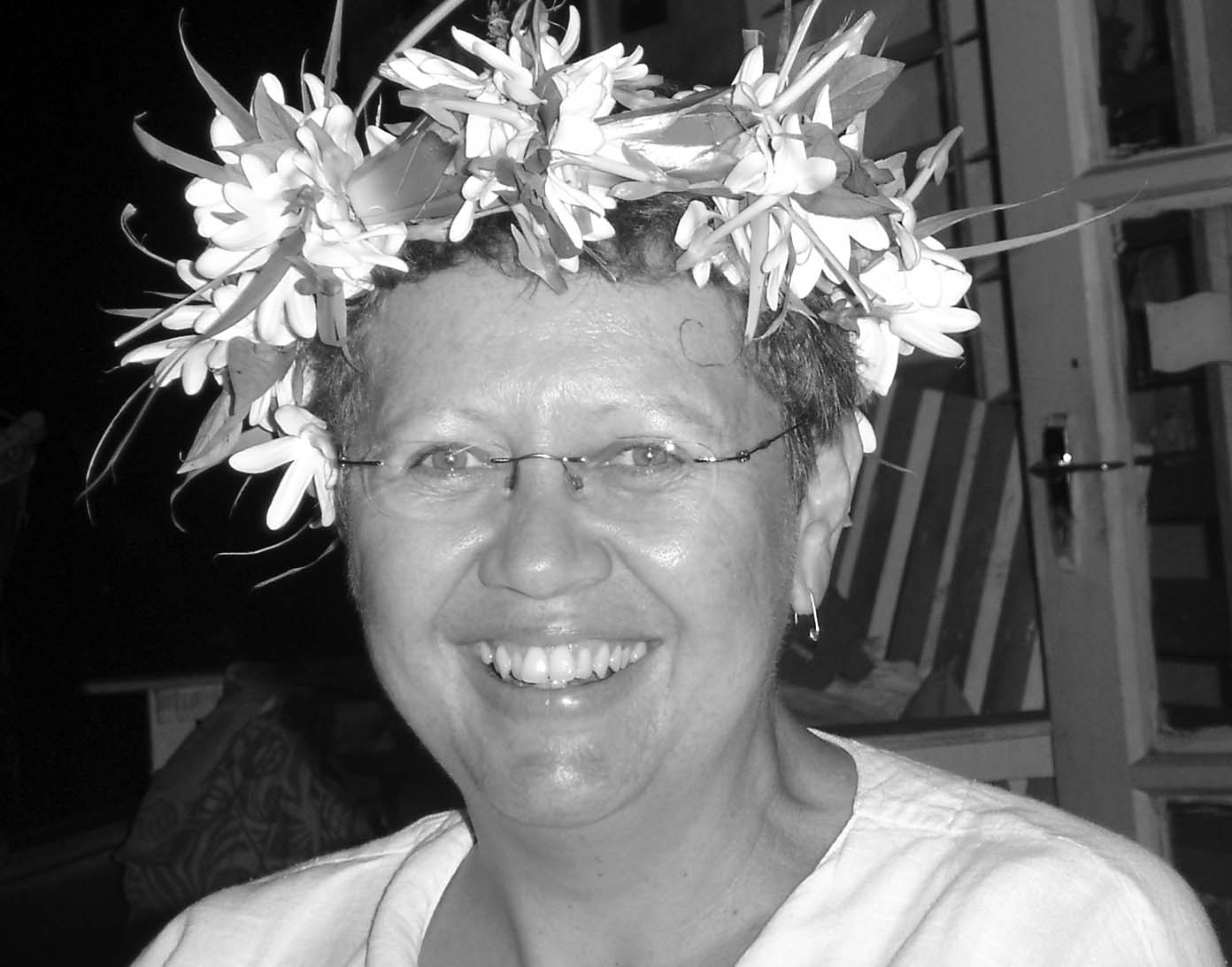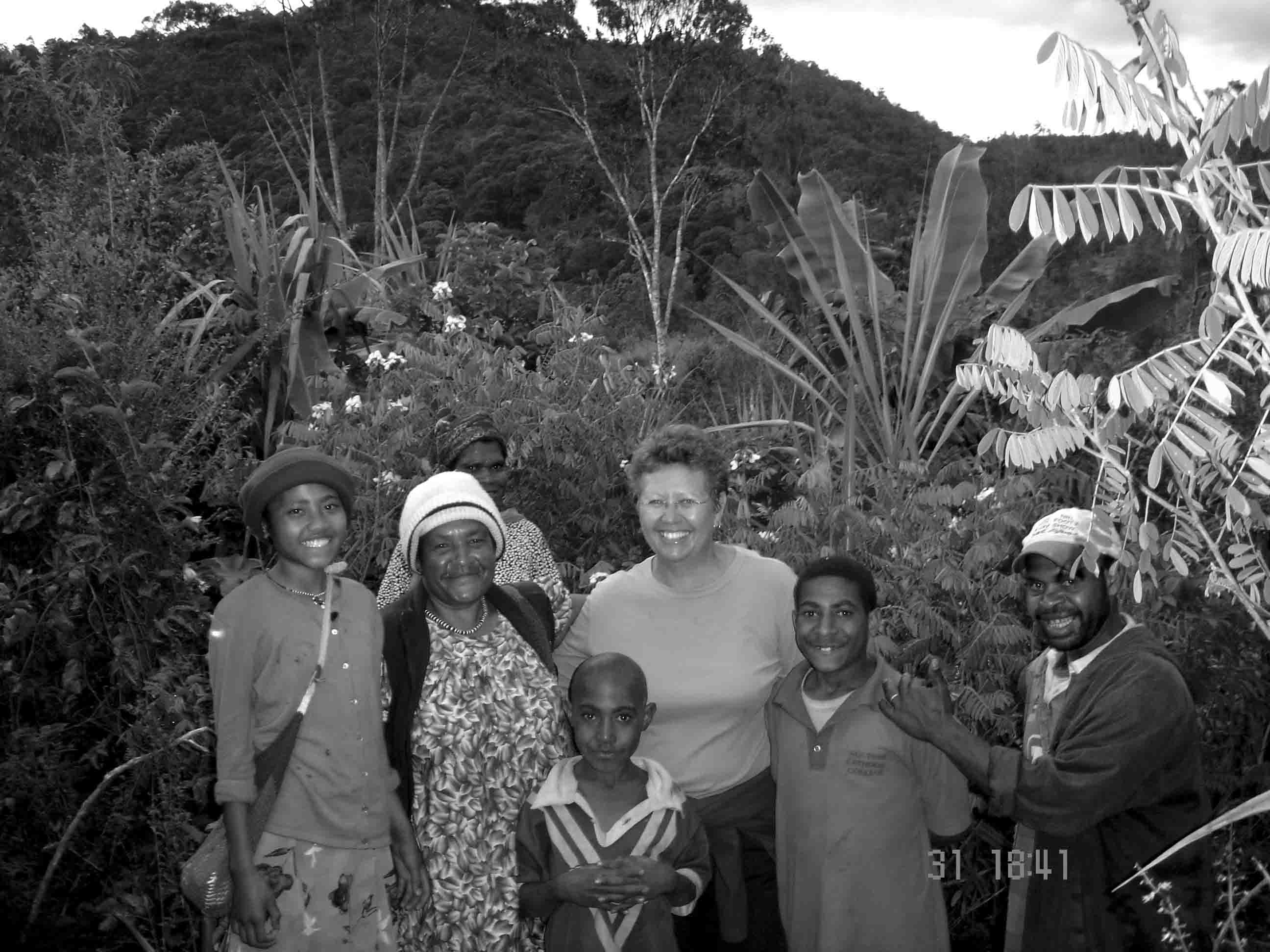Yvone Underhill-Sem on Feminist Political Ecology: Linking the Local to the Global
Yvonne Underhill-Sem, a feminist geographer of Cook Island/New Zealand heritage, is a professor of gender and development at the University of Auckland, and the regional coordinator for Development Alternatives with Women for a New Era (DAWN) in the Pacific. Online, she shared with Isis International-Manila her thoughts on Feminist Political Ecology, the very theme of this WIA issue. Yvonne gladly examined the feminist political ecology framework, tracing its development, and looking at its strengths and challenges. 
WIA: Feminist political ecology is a relatively new and currently evolving framework. Could you trace its beginnings?
Yvonne Underhill-Sem [Yvonne]: Within geography, feminist political ecology became a recognisable area of study with the publication of the geographer Diane Rocheleau’s edited book in 1997 entitled, Feminist Political Ecology: Global Perspectives and Local Experience (by D. E. Rocheleau, B. Thomas-Slayter and E. Wangari). Over the last decade, there has been a proliferation of political ecology studies focusing mostly on the developing world but although there has been a growing recognition that the themes of political ecology are applicable to First World situations as well advancing the specificities of a “Feminist” political ecology remains wanting.
A range of related theoretical approaches—including Marxism, dependency theory and world systems theory—have shaped political ecology studies. Perhaps not surprisingly, given this intellectual heritage, the feminist politics of this research agenda has been less evident. The reasons for this are many and varied but possibly pertain to the difficulties facing feminist scholarship in debates over disembodied human-environment studies. In these studies, the focus is more often on the relationships between already constituted subjects, who by default are gendered male. A revised feminist political ecology needs to begin more explicitly by focusing on the body because from here, the gendered effects of ecological process can be most clearly identified.
This disembodied movement was happening at the same time that ecofeminism was unproblematically embraced as a way of bringing women in. However, ecofeminists’ arguments served to effectively keep women at some acceptable analytical distance from mainsteam political ecology studies because they disallowed the far more diverse sets of social and ecological arrangements that constitute human-nonhuman relations.
My sense is that this essentialist approach is changing with the ecological component being more closely configured in otherwise more politically nuanced political ecology studies. Further, more theoretically complex analysis has expanded political ecology studies into first world studies that, possibly inadvertently, provides for more nuanced feminist engagements.
WIA: What are the implications of feminist political ecology on other discourses surrounding feminism and political ecology, for example, ecofeminism?
Yvonne: Ecofeminism has many adherents, but mostly more for its uncritical acceptance of some sort of homogenous woman. As mentioned above, this is an untenable argument. Concepts of diversity and essentialism are of cross purposes in feminist political ecology but inclusivity of the concept of diversity provides a more potent political analysis.
Ecofeminism
The social ideology that regards the oppression of women and nature as interconnected. It explores the commonalities between gender oppression and environmental degradation, which are mainly caused by male Western dominance.
Source: www.ecofem,org
WIA: Who are the feminists, actors or organisations that are in the forefront of the feminist political ecology framework?
Yvonne: In the academic field of geography, Diane Rocheleau’s work provides the most obvious starting point for critical analysis. Wendy Harcourt and Arturo Escobar’s edited book, Women and the Politics of Place, also provides insights into a revised feminist political ecology by framing debates as “women and the politics of place.” While politically nuanced, the “ecological” angle is getting greater attention from other scholar activists such as Marsha Darling.
Organisations that are at the forefront of this framework are sure to include an array of local and probably mostly undocumented movements operating in defense of their access to local resources necessary for continued livelihoods. This may not involve high profile challenges and movements like the Green Belt Movement, but many women collectively resist in defense of the resources that underpin their livelihoods. While their activities may not span the range of geographic scales usually associated with political ecology studies, their activities constitute a feminist political ecology because the link between local ecological process are clearly connected to the political practices of access to and use of resources. Such local action and their associated meanings are often invisible yet my experience in the Pacific is that such actions are ubiquitous.
an array of local and probably mostly undocumented movements operating in defense of their access to local resources necessary for continued livelihoods. This may not involve high profile challenges and movements like the Green Belt Movement, but many women collectively resist in defense of the resources that underpin their livelihoods. While their activities may not span the range of geographic scales usually associated with political ecology studies, their activities constitute a feminist political ecology because the link between local ecological process are clearly connected to the political practices of access to and use of resources. Such local action and their associated meanings are often invisible yet my experience in the Pacific is that such actions are ubiquitous.
Green Belt Movement
The Green Belt Movement is one of the most prominent women’s civil society organisations, based in Kenya, advocating for human rights and supporting good governance and peaceful democratic change through the protection of the environment and to promote good governance and culture of peace.
Source: http://greenbelt.org WIA: How do women mobilise and strategise using the feminist political ecology framework in addressing specific concerns, e.g., agriculture, mining, land rights, etc.?
Yvonne: I suggest that women on the ground rarely use an explicit political ecology framework as mapped out by activist academics. Rather, the latter are learning from actions on the ground to inform and influence political actions at national and international arenas. A huge challenge is to resist the tendency to suppress the gendered nature of an explicit feminist engagement that routinely happens as women underplay their own needs for the sake of the “common good.”
WIA: Using the framework, how could the feminist movements strengthen their advocacy towards gender, development and the environment, at the local, national, regional and international levels?
Yvonne: A key feature of political ecology is the integration of scales of analysis from the local to the internal regional, national, regional and international. By systematically mapping out the policy connections at these various geographical scales, and taking into account the various embodied practices upon which policies and regulations act, feminist advocacy would be strengthened.
WIA: What tools does the feminist political ecology framework bring to social movements involved in feminism?
Yvonne: The systematic nature of the connections between various geographically nested political scales of action and reaction, connections that are attentive to embodied practices in accessing and using local resources.
WIA: What are the current trends or issues on gender, development, and the environment that we should keep an eye on?
Yvonne: There are many. Some are conceptual, as in the analysis of the science and cultures of understanding the political use of the environment; discussions over vulnerability in disaster management; and the notion of “precautionary principle.” Others are more substantial, and cannot be overlooked for their continued effects such as nuclear contamination, the loss of biodiversity and effects of pesticides. Still, others are more immediately observable such as access to potable water, waste disposal and food security.
Although a relatively new and currently evolving framework, the Feminist Political Ecology lens proved to be useful as it equips feminists and environmentalists with an interdisciplinary approach for understanding the importance of gender, race, culture, ethnicity and class in looking at issues of resource management and sustainable development. This framework pose further benefits to women from the developing South as it allows them to interrogate and critique current and proposed neoliberal policies.





 The
The 
 Isis Resource Center holds one of the largest feminist collections of materials in the Global South. With 40 years of publication experience, Isis holds a vast collection.
Isis Resource Center holds one of the largest feminist collections of materials in the Global South. With 40 years of publication experience, Isis holds a vast collection.